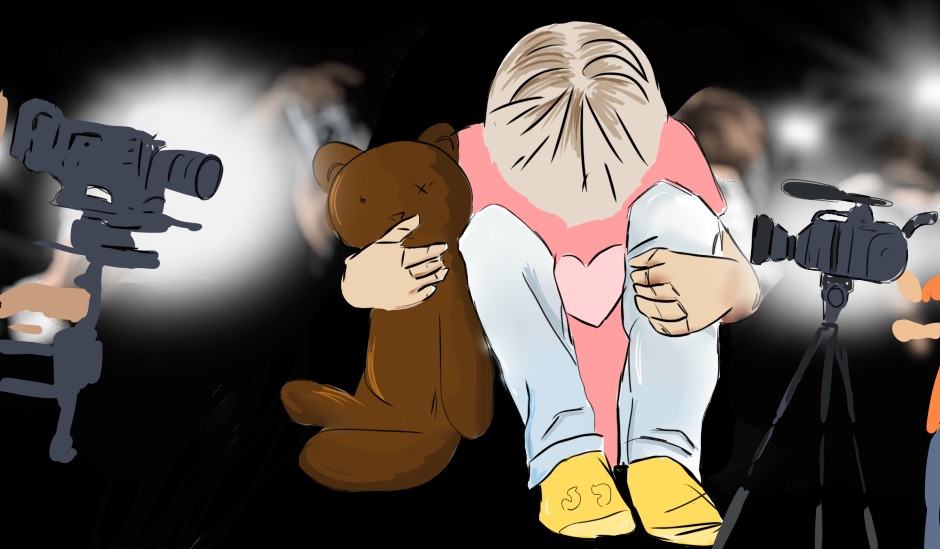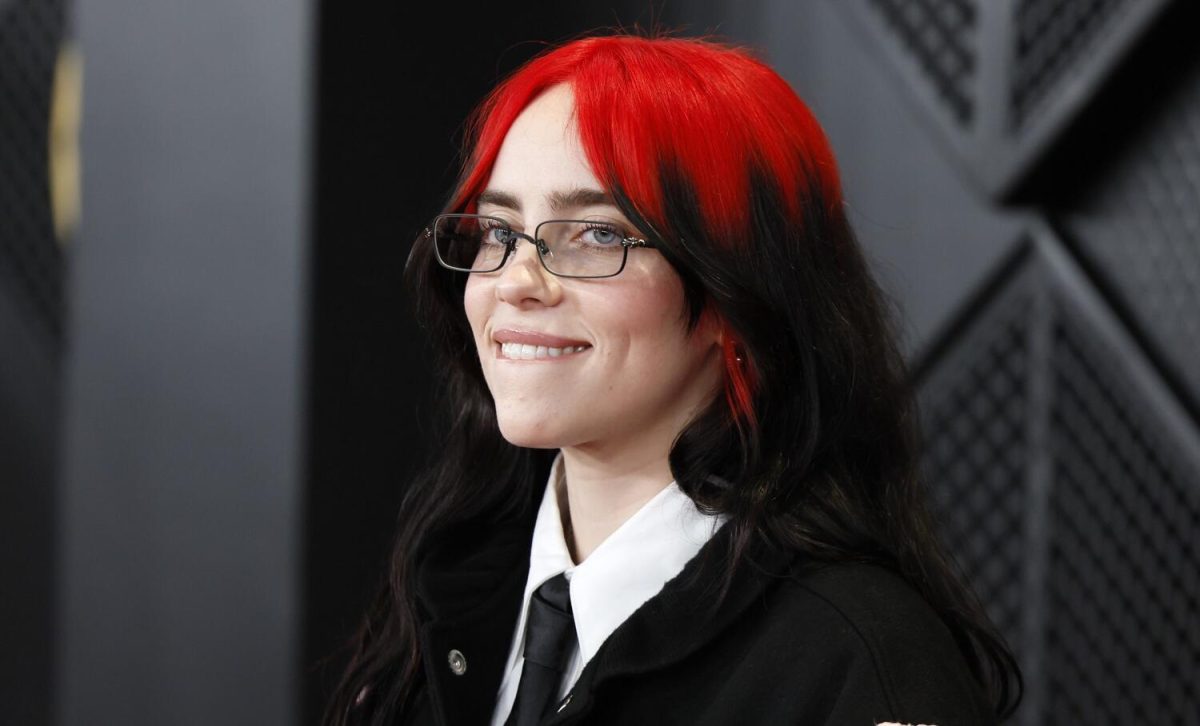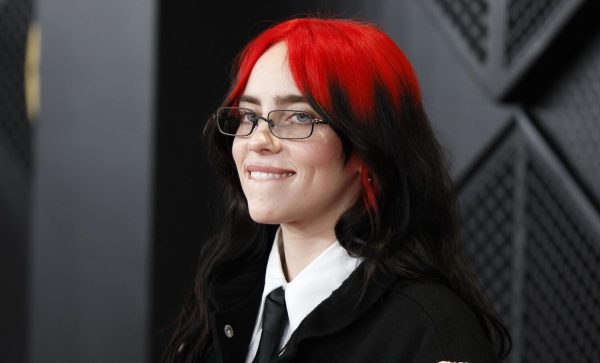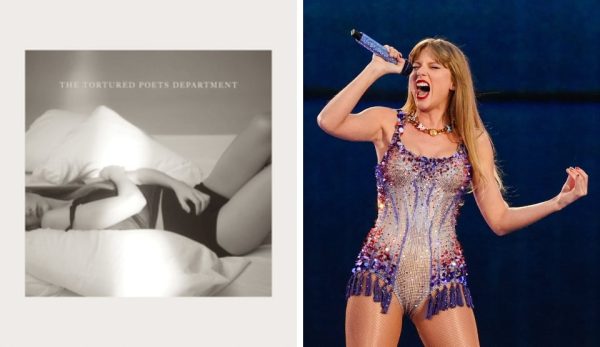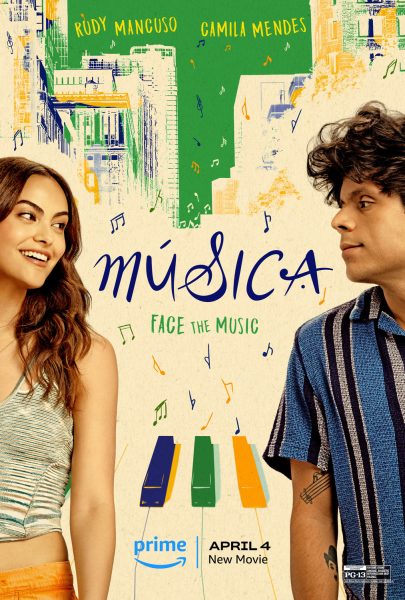[Review] ‘Everything Everywhere All At Once’ mixes current issues with deep philosophical ideas
Tribune News Service
From left, Stephanie Hsu, Michelle Yeoh and Ke Huy Quan in “Everything Everywhere All At Once.” Photo permission from Allyson Riggs/A24/TNS
March 15, 2023
Boasting a star-studded cast, intense visuals and a complex storyline, the film “Everything Everywhere All At Once,” manages to discuss themes of nihilism, existentialism and absurdism while also bringing in concepts of homosexuality, inter-generational trauma and the struggles of immigrant families.
Due to this melting pot of themes, concepts and issues, it is difficult to pinpoint just one genre that accurately conveys the plot of the film. The New York Times called the film a “swirl of genre anarchy” with elements of surreal comedy, science fiction, fantasy, martial arts films and animation.
The film was produced by the well known film and television production studio A24, which has gained attention in recent years for their unique storylines and often absurd visuals. Some well known A24 films include “X,” “Pearl,” “Midsommar,” “Uncut Gems” and “Hereditary.”
The film premiered at South by Southwest on Mar. 11, 2022, and began a limited theatrical release in the United States on Mar. 25, 2022, before a wide release by A24 on Apr. 8, 2022. It grossed about $108 million worldwide, becoming A24’s first film to cross the $100 million mark and surpassing the 2018 film “Hereditary” as its highest-grossing film.
In addition to writing the screenplay, the film was co-directed by Daniel Kwan and Daniel Scheinert, known in the film industry as the Daniels. They began researching the concept of the multiverse as early as 2010 and officially announced the production for “Everything Everywhere All At Once” in 2018.
Kwan described the release of the animated film “Spider-Man: Into the Spider-Verse” in 2018, which is also based on the concept of the multiverse, as “…a little upsetting because we were like everyone is going to beat us with this thing we’ve been working on.”
While the film was not the first to touch on the concept of the multiverse, it brought a fresh perspective to the idea through the use of a wide variety of current day issues as well as bringing in century old philosophical ideas.
The film was divided into three distinct parts based on the title. The first part was named “Everywhere,” the second was called “Everything” and the final part was “All At Once.”
While the film was a little lengthy, with a run time of two hours and 19 minutes, it moved at a blink-and-you-can-miss-it pace. As a result of the non-stop action, the constant shifting between universes and the fact that many of the scenes are left up to viewer interpretation, the film honestly feels a bit like a fever dream. At times, the storyline was difficult to follow as it was unclear which universe the characters were in and how their actions were affecting others.
In its simplest sense, the film follows Evelyn Wang, played by Michelle Yeoh, her husband Waymond, played by Ke Huy Quan and their daughter Joy, played by Stephanie Hsu, who are both Chinese-American immigrants. While their laundromat is being audited by the IRS, Evelyn discovers that she must connect with parallel universe versions of herself to prevent a powerful being from destroying the multiverse.
There is a lot going on in the first few minutes of the film. The audience learns that Waymond is trying to serve Evelyn divorce papers, Evelyn’s demanding father, Gong Gong, played by James Hong, is visiting her for the Lunar New Year party and Evelyn struggles to accept her daughter Joy’s lesbian relationship with her non-Chinese girlfriend Becky, played by Tallie Medel.
The action really starts to kick off when Evelyn and Waymond meet with IRS inspector Deirdre Beaubeirdre, played by Jamie Lee Curtis. While they are in the meeting, Waymond’s body is taken over by Alpha-Waymond, a version of Waymond from the “Alphaverse.”
Alpha-Waymond explains to Evelyn that many parallel universes exist because every life choice creates a new alternative universe. However, the multiverse is now threatened by Jobu Tupaki, the Alphaverse version of Joy, whose mind was splintered after Alpha-Evelyn pushed her to extensively verse-jump.
Jobu now experiences all universes at once and can verse-jump and manipulate matter at will. She has created a black hole-like “everything bagel” topped with everything that can destroy the multiverse.
Throughout the film, Evelyn discovers a variety of other universes in which she made different choices and flourished, such as becoming a kung fu master and film star. Alpha-Waymond believes that Evelyn, as the greatest “failure” of all Evelyns in the multiverse, has the untapped potential to defeat Jobu.
There were various comedic and bizarre elements in these universes that added to the overall humor of the film, including absurd universes where Deidre and Evelyn are in a romantic relationship and have hot dogs for fingers and one where Evelyn and her daughter are two different rocks on the side of a cliff overlooking desolate terrain.
The film not only boasted great acting, but also an amazing soundtrack composed by the band Son Lux as well as collaborations with Mitski, David Byrne and André 3000.
On the surface, the film may appear as a light hearted watch, but looking deeper it explores the meaning of life, existentialism, nihilism, absurdism, neurodivergence, depression, generational trauma, homosexuality and Asian-American identity. There is truly a lot to unpack when it comes to this movie.
The film effortlessly weaves the chaotic possibilities of the multiverse into a cohesive story about the aches and pains of the road not traveled, and the need to carve out your own meaning in a meaningless universe.
Critics lauded the film’s originality, screenplay, direction, acting, visual effects, costume design, action sequences, musical score and editing.
Due to this critical acclaim, the film has won a variety of awards including seven Oscars including Best Picture, Best Directing, Best Original Screenplay, Best Supporting Actress (Jamie Lee Curtis), Best Supporting Actor (Ke Huy Quan) and Best Editing. Yeoh became the first Asian woman to receive an Oscar for Best Actress for her role as Evelyn.
The film has been positively received by the audience with a 8/10 rating on IMDB and a 95% rating on Rotten Tomatoes.
The movie is available to stream on a variety of streaming services including Amazon Prime Video and Youtube.

